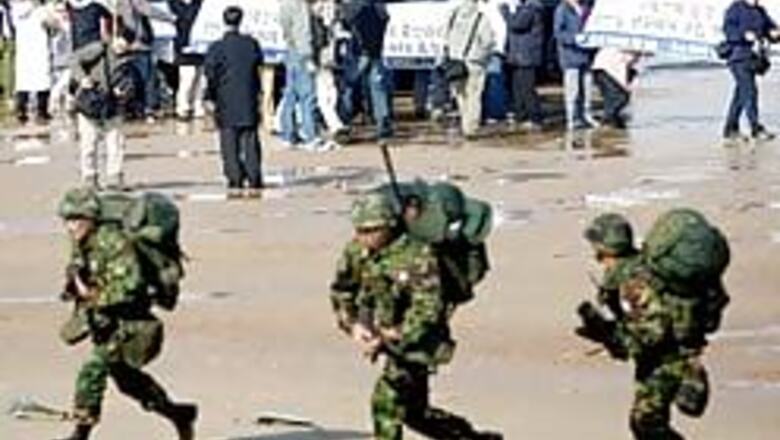
views
Washington: The military on Wednesday charged seven Marines and a Navy medic with premeditated murder and other crimes in the April 26 killing of an Iraqi civilian in a village west of Baghdad, the US Marine Corps said.
All eight men face the possibility of the death penalty if convicted. All were charged with premeditated murder, larceny, conspiracy, housebreaking, assault, kidnapping and obstruction of justice, while five also were charged with making false official statements.
"The Marine Corps takes allegations of wrongdoing by its members very seriously and is committed to thoroughly investigating such allegations. The Marine Corps also prides itself on holding its members accountable for their actions," Col. Stewart Navarre told reporters at Camp Pendleton, California, where the men are jailed.
The incident took place in the town of Hamdania in central Iraq and is a separate case from the November 19 killing of 24 civilians in Haditha in which other Marines are suspected.
Military investigators examined whether the servicemen fatally took a 52-year-old disabled Iraqi man, identified as Hashim Ibrahim Awad, from his home, shot him in the face, then planted an AK-47 assault rifle and a shovel next to his body to make it appear he was an insurgent placing a roadside bomb.
Those charged were: Marines Sgt. Lawrence Hutchins, Cpl. Trent Thomas, Lance Cpl. Tyler Jackson, Pfc. John Jodka, Lance Cpl. Jerry Shumate, Lance Cpl. Robert Pennington, Cpl. Marshall Magincalda, and Navy Hospitalman Third Class Melson Bacos.
There have been a number of cases of misconduct by US troops in Iraq, although military leaders maintain the vast majority of American troops have conducted themselves honorably. The eight men have been held in pretrial confinement at the Camp Pendleton brig since May 24.
Their next step is a hearing to determine whether their cases go to court-martial, which would be held at Camp Pendleton. Defense lawyers have asserted that investigators extracted incriminating statements by using inappropriate interrogation methods.



















Comments
0 comment